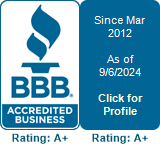PREP STEPS FOR PENALTY REDUCTIONS
- Gather your Tax Returns(s) involved.
- Collect any IRS notices you have.
- Gather any medical reports for on-going medical problems.
- Contact Mr. Hopkins in Colorado Springs or Pueblo to set Consultation.
- Bring all documents to the TaxHelpLaw consultation. See you there!
Your Tax Attorney Consultation will be most productive if you call the IRS at 1-800-829-1040 and request your Account Transcripts & your Wage & Income Transcripts. See below* (More Info)
Interest on IRS Debt
Interest charged to you by the IRS cannot be waived and it cannot be deducted. Interest may be fully or partially abated if the IRS delayed your case, but this is rare. The IRS will send you Notice 1016 which explains how to stop the running of interest (by paying, of course!)
IRS Penalties
There are many types of penalties & different legal standards for each. (Negligence, Accuracy-related, Estimated Tax, Deposit penalty, Fraud, Substantial Understatement, etc.) See Notice 746 for detail. The "Trust Fund Recovery" Penalty for employee withholding taxes is not a "penalty" assessed as a tax. It is a personal fiduciary liability assessment & not subject to abatement.
The most common penalties are for Delinquency in Filing or Paying, including failing to pay Estimated taxes See, i.g. IRS Notice CP30 imposing the penalty and IRS Notice CP30A reducing the penalty.
Delinquency penalties are not deductible on current year taxes but they may be waived by the IRS through a procedure known as a Penalty Abatement. There is a list of reasons in the Internal Revenue Manual for excusing you from penalties. But, essentially, the tax attorney must prove that your failure to file and/or failure to pay are due to "reasonable cause and not willful neglect".
Procedure
There is no particular form to make this request, except Form 843, if a Claim for Refund is filed. But, you must usually full-pay the debt before you can claim a refund. If you are denied the claim, you can Appeal within the IRS. Or, you may file suit in US District Court since the claim denial exhausts your administrative remedies.
The primary reason for granting a penalty abatement is for medical problems. Therefore, to make an effective penalty abatement request, you must show the IRS various doctor reports. These reports must detail medical information about the cause, diagnosis & effect of these medical problems for you or anyone in your family. So, make sure the request is thorough & well-prepared!
A Penalty Abatement request does not extend the collection statute of limitations. Since penalties can be up to 50% of the tax the procedure is very beneficial. However, it should be used only when appropriate & when presented correctly.
Successful Outcome
Afterwards, if your request is granted the IRS will notify you with these letters:
Notice CP143 & Letter 168C both grant abatements for Delinquency Penalties. The Letter 168C also indicates if other penalties have been considered & the IRS determination. The reasons for the determination & instructions are often vague. But, you are given the opportunity to Appeal an unfavorable determination.
Letter 3503C grants an abatement for Delinquency penalties but solely for the reason that you had a "good history of timely filing and timely paying".
If the IRS denies your request they will send Letter 853C or Letter 854C for a business. You can always Appeal this denial. But, if the IRS has issued a levy against your wages or bank accounts, please follow the Prep Steps for Collections.

*Wage & Income Transcripts are computer-generated IRS records about you from your job, your bank, your mortgage company, etc. Account Transcripts show the details of your IRS account. If you are too nervous about calling the IRS just bring what you can and come in. If you call, the IRS may be stern but don't worry, you need the Wage & Income Transcripts & the Account Transcripts. Tell them you are not yet ready to talk and need the documents for a tax attorney. Don't Argue!!






